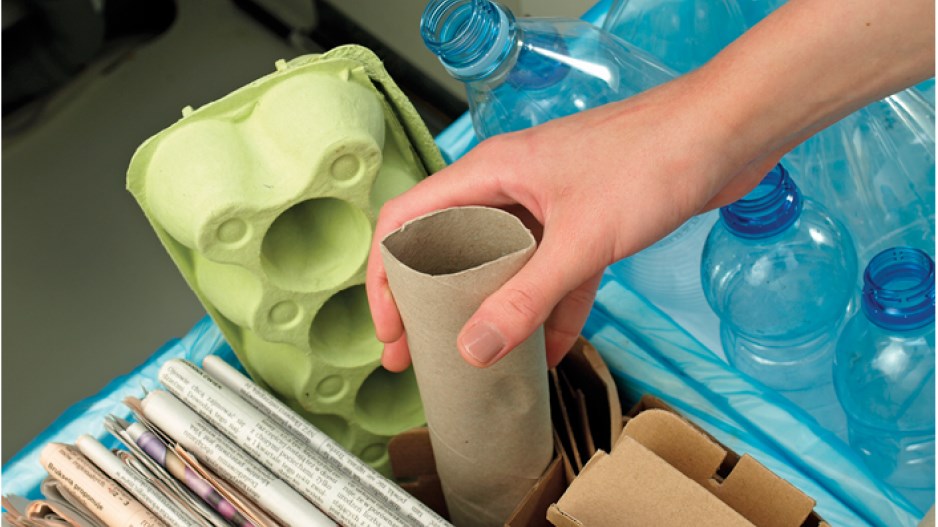Three months before a new recycling system is set to roll out in British Columbia, some Lower Mainland municipalities and recycling businesses have raised concerns about how the program will affect their bottom lines.
“I don’t know who my [recycling] processor’s going to be. I don’t know if I’m going to have to reroute trucks,” said Kristian Davis, supervisor of recycling and solid waste for the City of New Westminster.
“Currently we process our material here at a local operation called Urban Impact. Having them in our own backyard reduces our carbon footprint, employee costs, fuel, the wear and tear on the trucks.”
New Westminster-based Urban Impact, which collects and processes recycling, was unsuccessful in its bid to process recycling under the new system, which is run by an industry-led agency called Multi Material BC (MMBC).
Instead, MMBC announced that a consortium of three companies, Green by Nature, had won the bid. There may be an opportunity for local recycling companies to be awarded subcontracts, according to MMBC.
Urban Impact owner Nicole Stefenelli declined to comment in detail about what the change will mean to her business, but she said it was still not clear whether her 120-employee company would be a subcontractor.
After May 19, MMBC will take control over many B.C. municipal recycling services.
The non-profit agency was created to implement B.C.’s new recycling legislation, passed in 2011. That law makes industry responsible for paying for, collecting and recycling the packaging waste it puts into consumers’ hands.
The extended producer responsibility system is similar to stewardship programs for things like tires and paint and is already in place in Ontario and Manitoba.
The implementation of B.C.’s program has been contentious with both municipalities and business groups. Last September, municipal leaders raised concerns that the rates MMBC had offered would not fully cover the cost of collection and that they could be fined if they could not meet an aggressive 3% contamination rate, which is what happens when residents put non-recyclable waste in their recycling bins.
But by the end of November, most Metro Vancouver municipalities had signed contracts with MMBC, which made them eligible to receive a portion of $60 million in financial incentives.
MMBC has said it won’t fine municipalities during the first year of the new program. After that, municipalities will not be fined if they can show they’re making an effort to reduce recycling contamination, said Davis.
But Davis said MMBC’s approach might disrupt municipal recycling systems that are already functioning well.
“We run a very efficient program; we have one of the lowest costs in the region because we have a processor next door. Our costs are lower but [MMBC’s] incentive just narrowly meets that mark. I can’t imagine what it would be like for a municipality that had greater driving distances to and from a processor.”
On March 10, a coalition of business groups launched a campaign against MMBC, saying the new system will hurt businesses and lead to job losses.
Under the new system, MMBC says, more items will be recycled and recycling will be extended to rural areas that previously did not have the service. •




